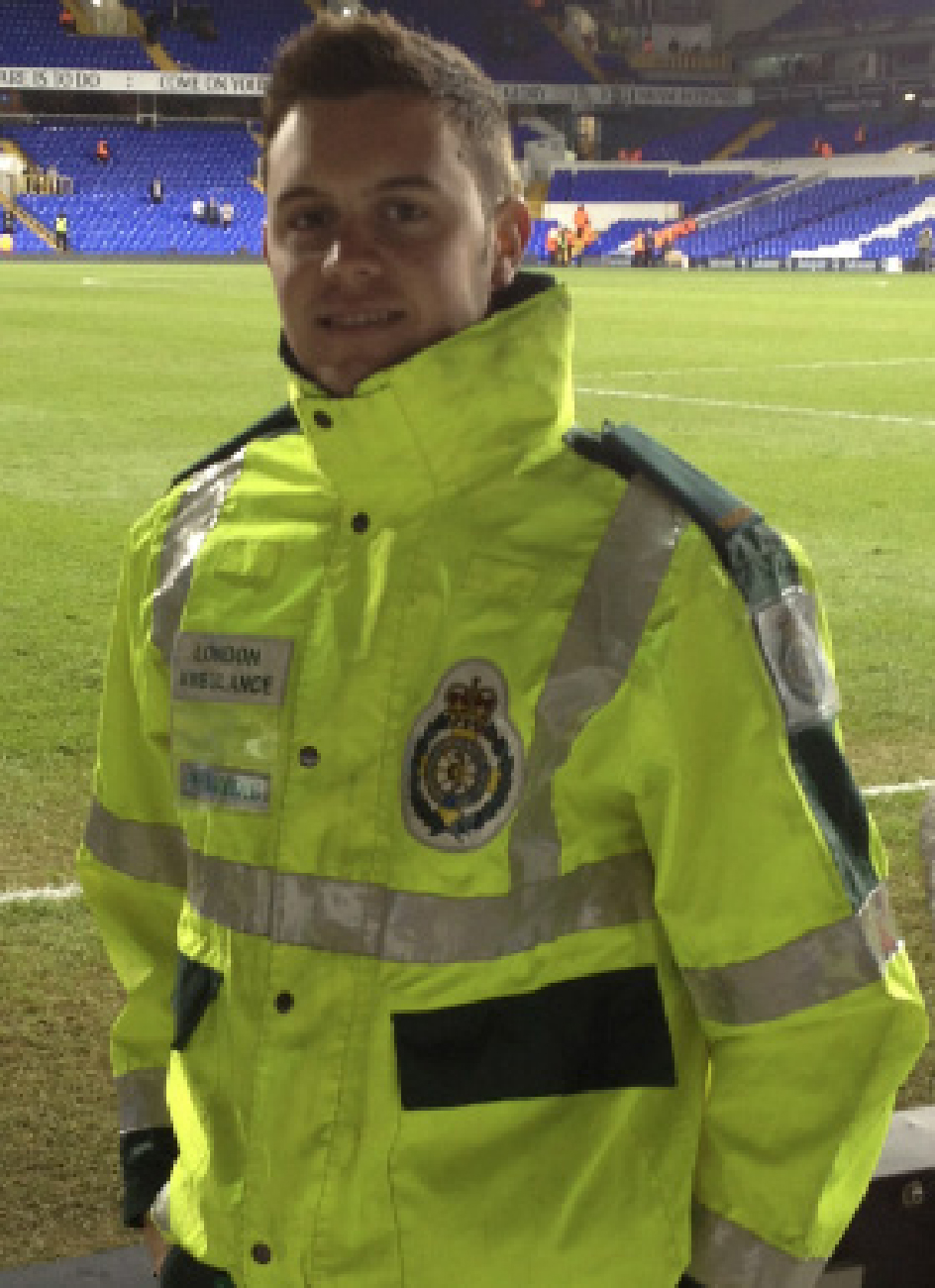Ashley Reed, a paramedic for London Ambulance Service NHS Trust (LAS), is six months into a two year part time funded Master's of Research in Clinical Practice (MResCP) at Kingston and St George's, University of London, and is enjoying every minute of it.
He was awarded a fully-funded studentship, offered to NHS healthcare professionals as part of the Government's drive to modernise NHS careers and improve healthcare, facilitating excellence in practice through innovative research. The inter-professional programme funded by the National Institute for Health Research is part of a Clinical Academic Career Training programme that equips healthcare professionals with in-depth knowledge of research and key skills, enabling them to generate, support and lead research within the clinical setting.
Ashley (who is the first paramedic to be recruited to the MResCP programme at St George's) saw the MResCP as a ‘fantastic opportunity to learn how to be a researcher for my own clinical career development but also for the profession and the patients.’ The funding arrangements mean that LAS can claim back basic salary and employment costs for the two and a half days a week Ashley attends the University. When not studying he continues his work on a Fast Response Unit tasked to high category emergency calls. This arrangement enables Ashley to maintain his clinical skills while learning. Ashley feels he has the best of both worlds; the balance concurrently informs and supports his approach to both his clinical work and research activities.
Having the time to explore clinical problems and pursue career development through research is a valuable opportunity not to be missed
His enthusiasm for the course is evident:
‘The taught course covers lots of interesting and relevant topics associated with research that enables you to engage in a range of activities. There's a mix of lectures and classroom-based activities, with lots of opportunity to ask questions and gain the necessary support from the staff and your peers. It is a friendly atmosphere with a range of professions and experienced researchers and clinicians offering multiple insights. You not only learn about research; there is so much that can be learnt about clinical practice and your own abilities from engaging with this course.’
Throughout the course students learn to apply their knowledge by undertaking their own piece of research. Working closely with his supervisor, Alan Rice (senior lecturer in Paramedic Sciences) and clinical mentor, Mark Whitbread (former consultant paramedic and now director of paramedic education and development for LAS), Ashley is preparing to investigate how paramedics can apply a new method for risk stratification of high risk non-ST elevation acute coronary syndromes. Keen to provide the best evidence-based care, he hopes his research may ‘in the future save lives and increase the skills and autonomy of paramedics.’

Course director, associate professor, Dr Cheryl Whiting notes that:
‘Ashley is part of a new generation of researchers who have the capacity to not only raise standards of care but the status of their professions. Since the course began in 2009 we have been fortunate enough to recruit high calibre students who have produced some outstanding pieces of clinically relevant research that is already having an impact on practice. After graduation, we hope Ashley will (like many others) go on to publish his work and pursue study at doctoral level.’
Having the time to explore clinical problems and pursue career development through research is a valuable opportunity not to be missed. Ashley urges other paramedics to apply for the programme and benefit from the funding and the chance to learn from, and alongside, other research minded healthcare professionals.

